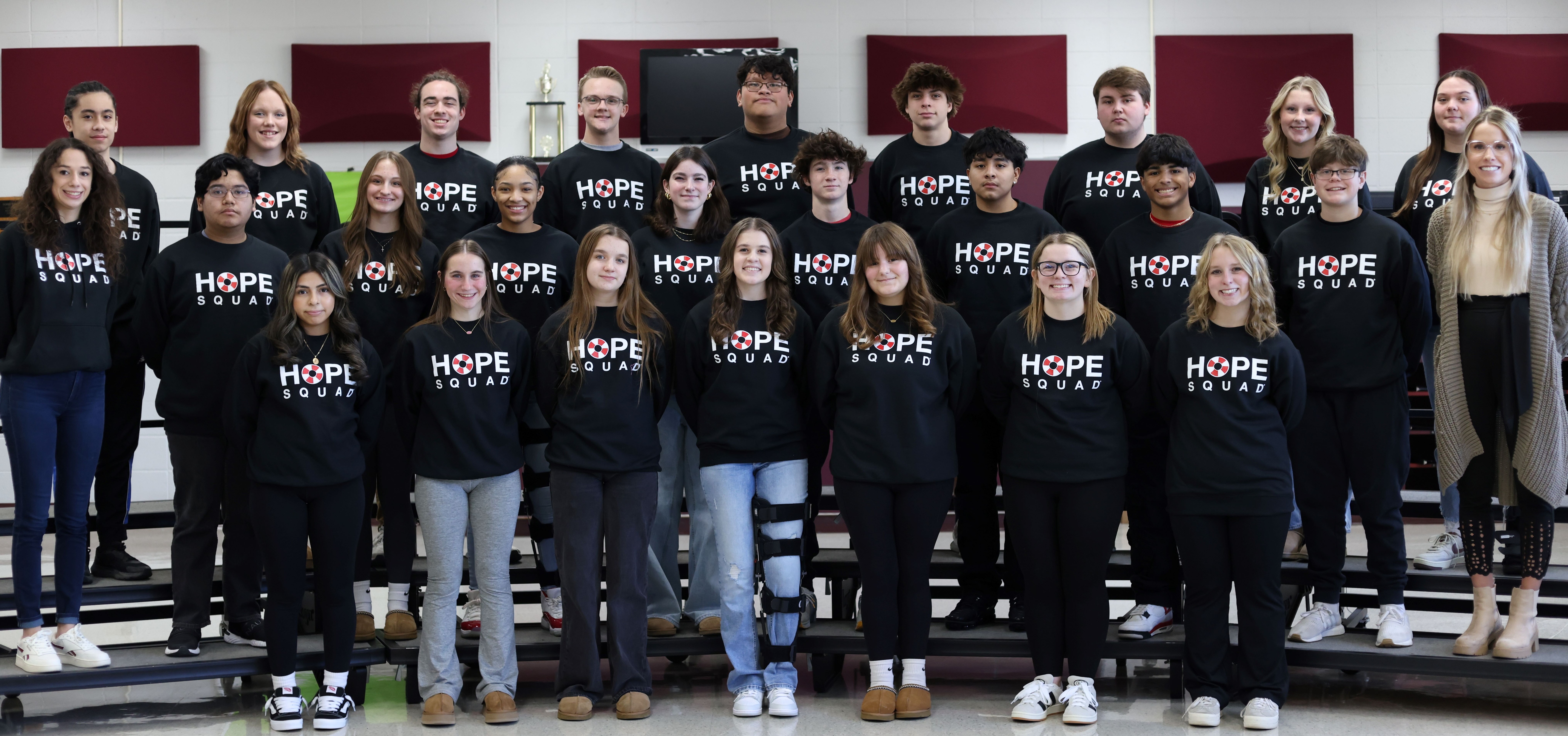HOPE Squad

2024-2025 HOPE Squad - Row 1: Karen Ortiz Piuchardo, Kate Hummel, Emsley Yunker, Lainie Esser, Elyse Hartwig, Karlie Kroening, Kelsie Kroening; Row 2: Ms. Kayla Guenveur, Gael Moveno, Madelyn Perkins, Malija Spearman, Kendall Bach, Ryne Huff, Joe Leon, Ta-Kai Hubbert, Trevor Morand, Mrs. Kara Gregory; Row 3: Jonathon Baker, Alex Bender, Logan McHugh, Gavin Baxter, Humberto Nova, Quincy Torrez, Brett harvey, Easton Gregory, Wrigley Grindle; Not Pictured: Andie Beetstra, Erik Colin, Ella Lippert, Clemente Olague, Aubri Waswo
"Our goal is to prevent suicide through public awareness and education, reduce stigma, and serve as a resource to those touched by suicide."
Advisers
Mrs. Kara Gregory
Ms. Kayla Guenveur
Core Values
1. We value education.
The Hope Squad program was built by educators in partnership with mental health experts. The evidence-based training changes how schools approach mental health and suicide prevention.
2. We value taking initiative.
Hope Squad members are trained to take action when someone is struggling. Instead of waiting for a peer to come to them, Hope Squad members are the ones to reach out first.
3. We value openness.
Hope Squad members are trained to be aware of their peers and watch for warning signs. They learn to show empathy to their peers, listen without judgment, and reduce stigma regarding help-seeking and mental illness.
4. We value self-care.
You can help others best if you are also taking care of yourself. We advocate for maintaining healthy boundaries, building resilience, and avoiding burnout.
5. We value community.
It takes a village to raise a child, and it takes an entire community to save one. The Circles4Hope model recognizes the role of mental health partnerships, school programs, and community connections working together for suicide prevention.
Areas of Focus
1. Safety.
Hope Squad members recognize the warning signs of suicide, reach out to peers in distress, and refer them to trusted adults.
2. Connectedness.
Hope Squad members actively look for ways to support their peers and increase connectedness in their schools.
3. Bullying Prevention.
Hope Squad members recognize bullying, intervene, and encourage other students not to be bystanders.
4. Mental Wellness.
Hope Squad members promote resilience and self-care and work closely with their local mental health agency.
5. Reducing Stigma.
Hope Squad members reduce the stigma associated with mental illness and mental health and show that it’s okay to get help.
6. Substance Abuse Prevention.
Hope Squad members understand the complexity of substance abuse, encourage peers to make healthy choices, and persuade struggling peers to get help.
